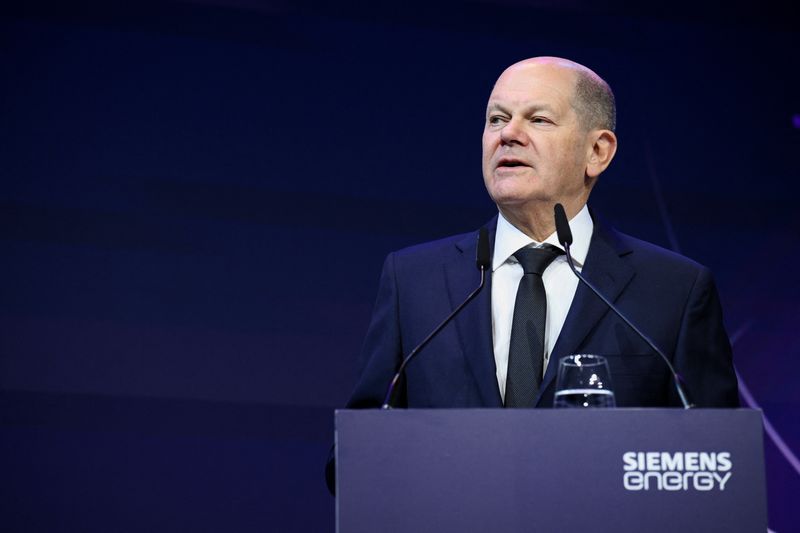BERLIN (Reuters) -The German government has reached a five-year agreement on a package of measures to support industry in the face of high electricity prices, as it steps up efforts to stop firms relocating to countries with lower production costs.
The relief will amount to up to 12 billion euros ($12.83 billion) next year alone, said German Chancellor Olaf Scholz in a statement on Thursday, calling the package "very good news".
Finance Minister Christian Lindner said in the statement that the support would be financed within the framework of Germany's debt brake, which had been a major sticking point.
The agreement, first reported by the Handelsblatt newspaper, comes after months of wrangling within the coalition over how to ensure German industry remains competitive after Russia curbed gas supplies in retaliation for Western sanctions over the war in Ukraine, sending energy prices sharply higher.
Although the government introduced electricity and gas price caps last year to shield industry and households, leading companies in Germany say electricity prices are still too high by international standards.
Measures in the new package include cutting the electricity tax to the minimum level permitted by European Union law for all manufacturing firms, as well as raising and extending for five years the compensation received by 350 firms that compete internationally and are most at risk of relocating.
"It is important that we have found a common path with which we can support the competitiveness of industry - from small- and medium-sized enterprises to large corporations," said Economy Minister Robert Habeck in the statement.
Economists largely welcomed the deal, which had helped lift the shares of German chemical firms such as BASF and Wacker Chemie by 3.3% and 5.3%, respectively, by 1238 GMT.
However, the German Chamber of Industry and Commerce (DIHK) cast doubt on whether the package would fully achieve its aims.

"The small expansion and, above all, the stabilisation of electricity price compensation are an important signal for the extremely energy-intensive sectors," it said.
"However, it is doubtful whether the package will ultimately be sufficient to ensure competitive electricity prices for the entire industry."